When “Fluent” Backfires A Coffee Break That Blew Up
You and a new colleague, Cathy, were chatting in the break room about travel and language skills. She boasted she was native-level fluent in three European languages (including French and Dutch). Since you grew up in Belgium and speak Dutch and French natively, you responded in Dutch (“oh leuk, dan hebben we iets gemeenschappelijks!”). Cathy reacted by saying she couldn’t understand because of your accent. You told her you actually are fluent in Dutch (and French), implying she had lied. She left angry, later accused you of being “superior” and called you behind your back a “bully.”
You’re asking: are you the asshole? Should you apologize to smooth things over — or let it ride, especially since there were witnesses?
Liars don’t like getting caught. Accidentally catching a pathological liar in the middle of a lie can lead to quite a bit of office drama

That’s what happened to one woman. She was excited to learn that her new coworker spoke the same foreign languages as she did. As it turns out, she was a fraud
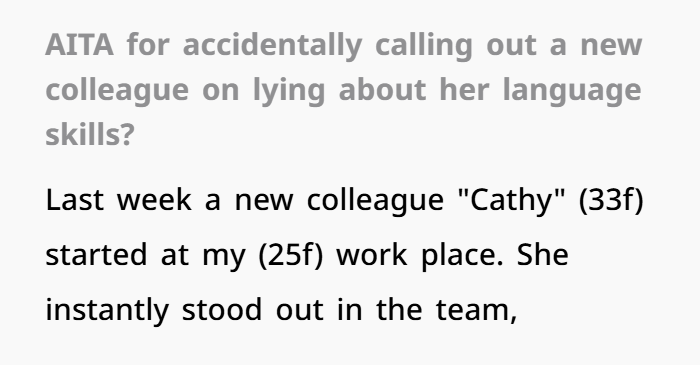
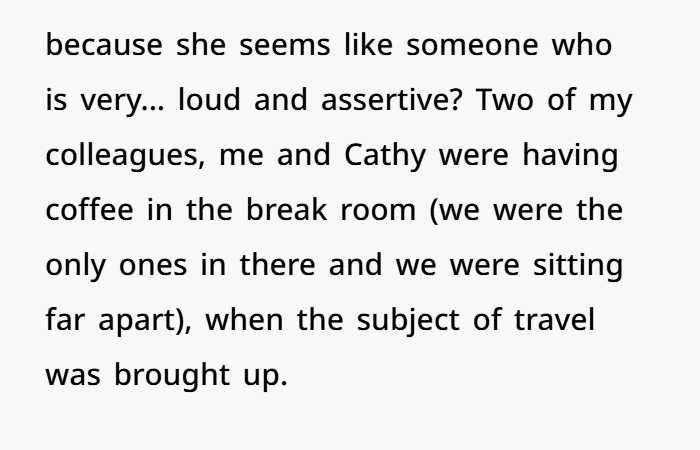

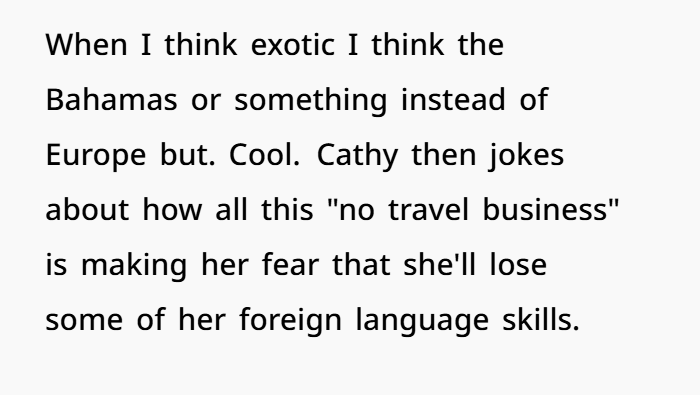
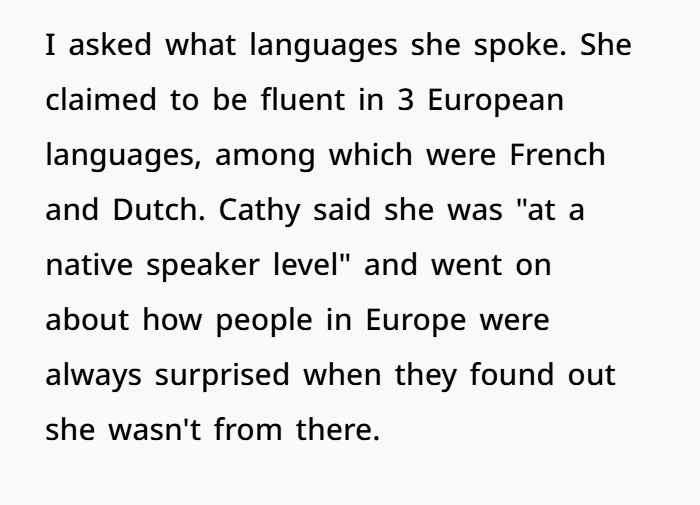
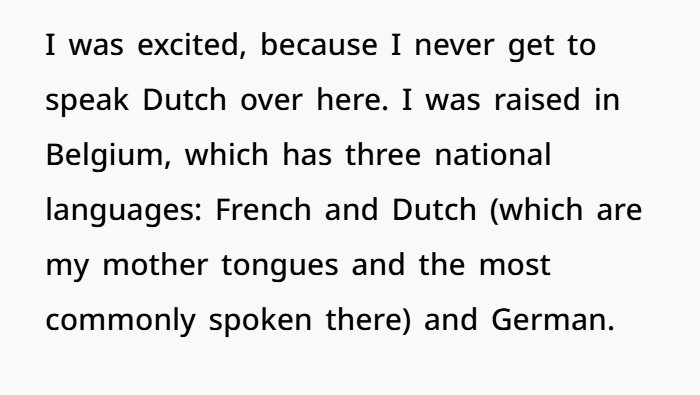

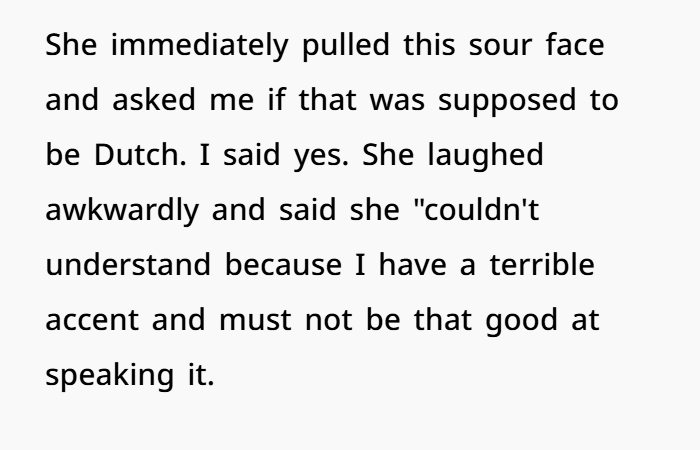
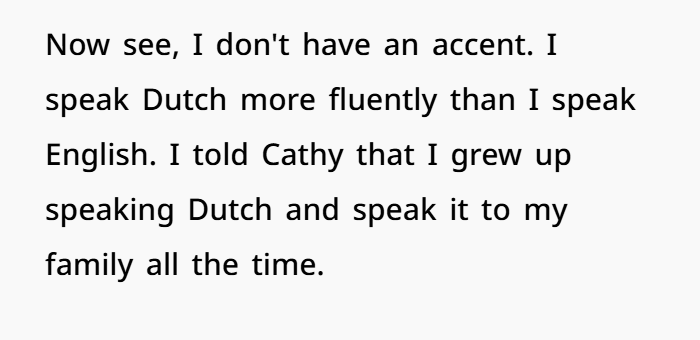
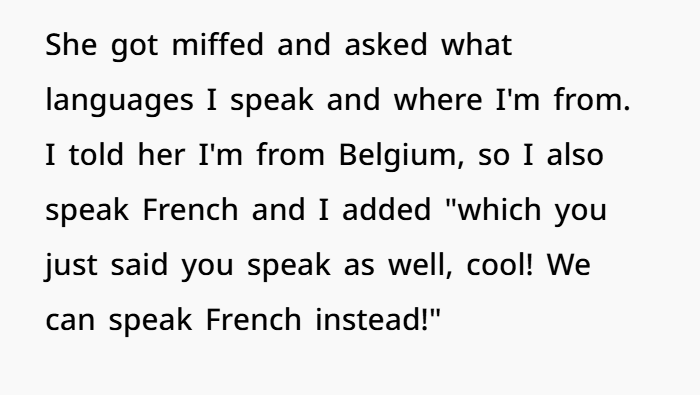
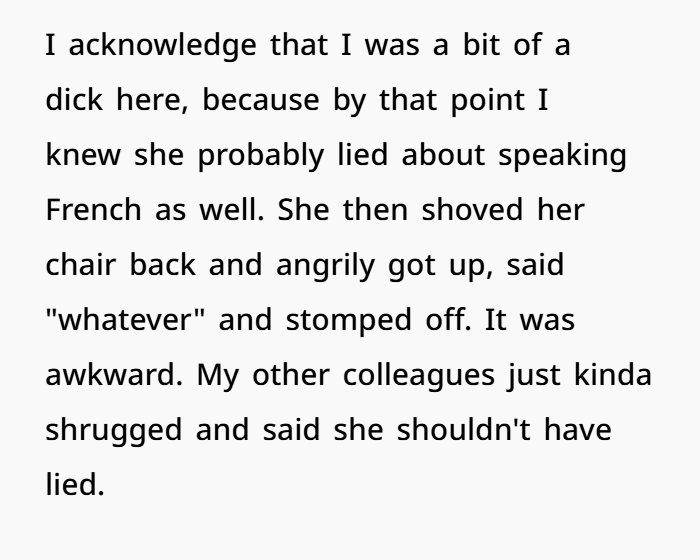
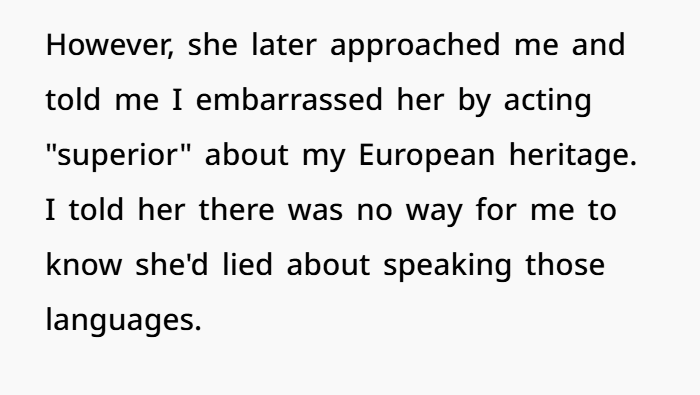
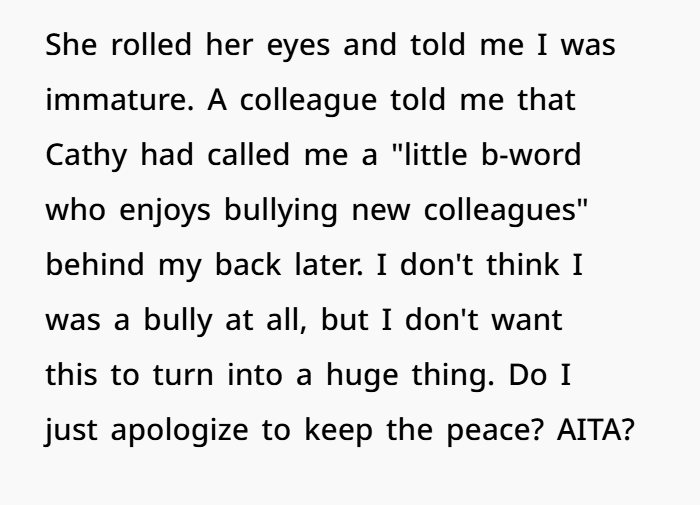
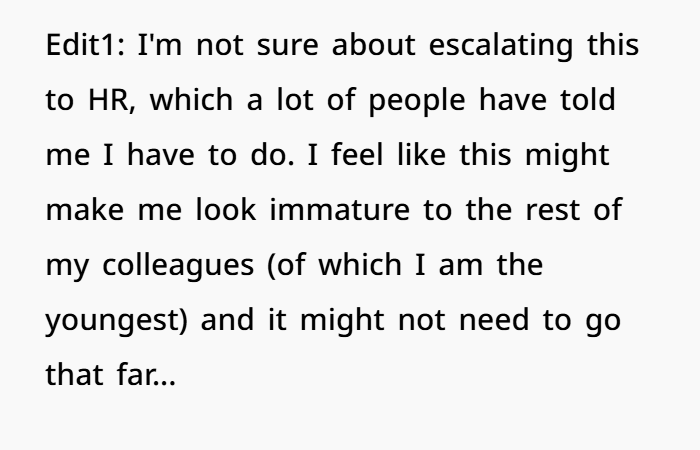
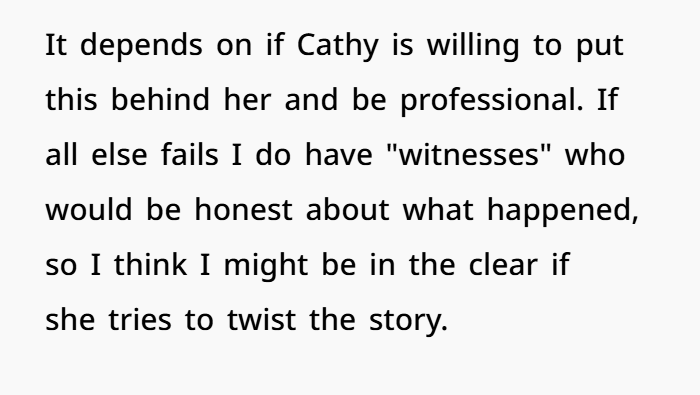


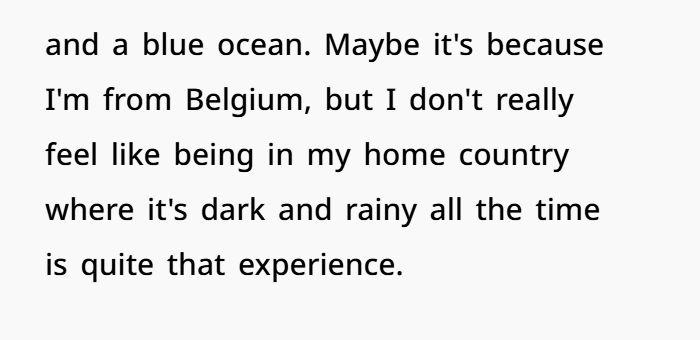


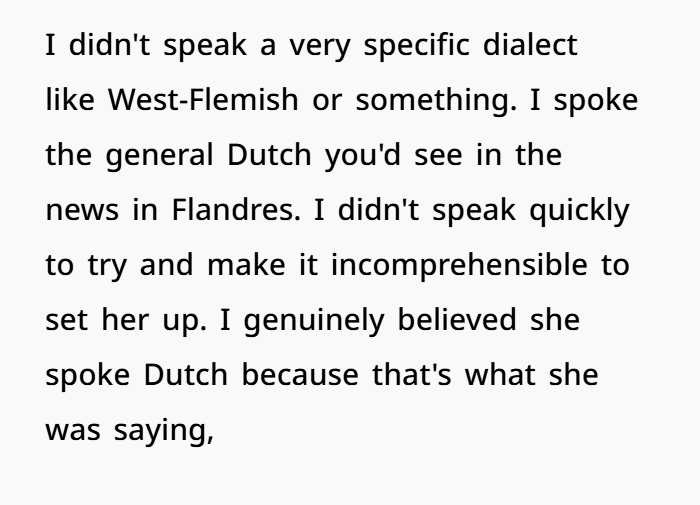
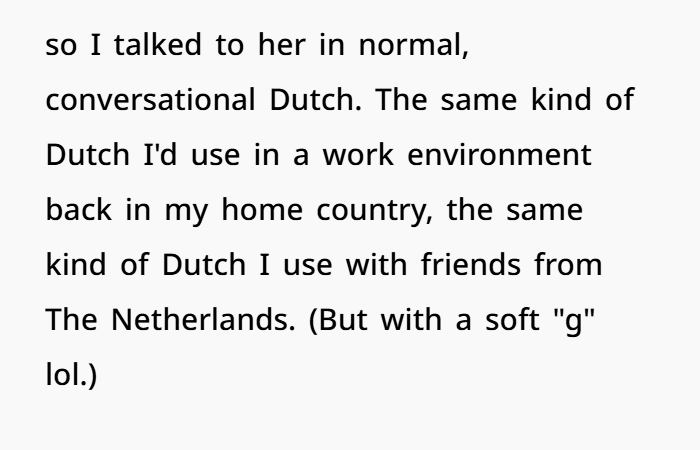
Let me walk through what I see here: the interpersonal dynamics, possible misinterpretations, and how you might move forward.
1. The risk of calling someone out publicly
When you challenged her language skills — especially in front of others (or with the potential of others overhearing) — it put her on the defensive. Even if she was exaggerating (or lying), calling someone out in that way often feels like an attack. She interpreted it not as curiosity or fact-checking, but as you acting “superior.”

Often, people who exaggerate claims do so because of insecurity, wanting to impress, or feel pressure to “look good.” Pressing them too hard in public can lead to a standoff.
You say you believed her claims and responded naturally — that’s fair. But the moment you confront someone’s truth in real time, you shift from conversation to confrontation.
2. Identity, competence, and status in language claims
Language ability is deeply tied to identity, intellect, and social status. Saying “I speak French / Dutch fluently” isn’t just a factual claim — it suggests a certain prestige, cosmopolitan background, maybe education. When you challenged that, it may have felt like a challenge to her identity or self-worth.
Also, when someone overstates skills, sometimes they’re masking imposter feelings. They’re afraid they won’t be seen as good enough unless they seem exceptional. The lie (or exaggeration) might serve as a psychological prop. (This ties into impostor syndrome dynamics.)
So when you popped the bubble on her claim, she may have felt humiliated more than “caught in a fib.”
3. Your tone and phrasing matter
You admit “I was a bit of a dick here.” That’s an honest self-reflection, and it’s important. Even if your intent was neutral (e.g. surprise, delight), phrasing can come across as condescending. The “cool! we can speak French instead!” line might have felt dismissive: that your revelation (you speak those languages) trumped hers.

Small differences in delivery — empathy, curiosity, humility — would change the tone. Instead of “you must have lied,” one might say, “Oh, that’s impressive, I’d love to hear you speak it — maybe I didn’t catch it.”
4. Power, age, and workplace dynamics
You mention you are the youngest in the team. That might make any conflict with Cathy feel more precarious to you — like if you push too much, you risk being labeled immature or insubordinate.
Also, new employees often feel extra pressure to prove themselves, and senior colleagues catching them in a lie might be felt as bullying rather than feedback.
5. The path to resolution (without HR escalation, if possible)
Given that you don’t want a big blow-up, you have some middle ground:
- Offer a “soft apology” that acknowledges her feelings, not necessarily admitting wrongdoing (if you feel you didn’t) but defusing tension. For example: “Hey Cathy, I’m sorry that our exchange made you feel embarrassed. That wasn’t my intent.”
This invites her to move past it. - Reframe going forward: show respect, keep interactions professional and kind. If she brings up language, let her lead, don’t push it.
- If she persists in hostility, you keep documenting behavior (if needed), stay calm, and if it affects your work, consider talking to HR. But starting with a personal approach is usually less escalatory.
- Learn for the future: when you detect exaggeration, let the person save face. E.g. “Oh wow, that’s cool. I’d love to practice sometime” rather than “Prove it.”
6. Are you the asshole?
I lean no — you’re not the asshole. You responded naturally given your background. You didn’t plan a public takedown. It became heated, but the spark was her claim.
However — you did contribute by not handling it gently. You could have de-escalated sooner.
So in terms of the typical AITA logic:
- Intent: not to harm, but to connect (or confirm) shared language.
- Impact: she felt embarrassed and attacked.
- Responsibility: you share some, especially in how you responded.
So you’re not an asshole, but you have room to repair.
Internet users rushed to share their thoughts about the workplace drama. Here’s what they had to say
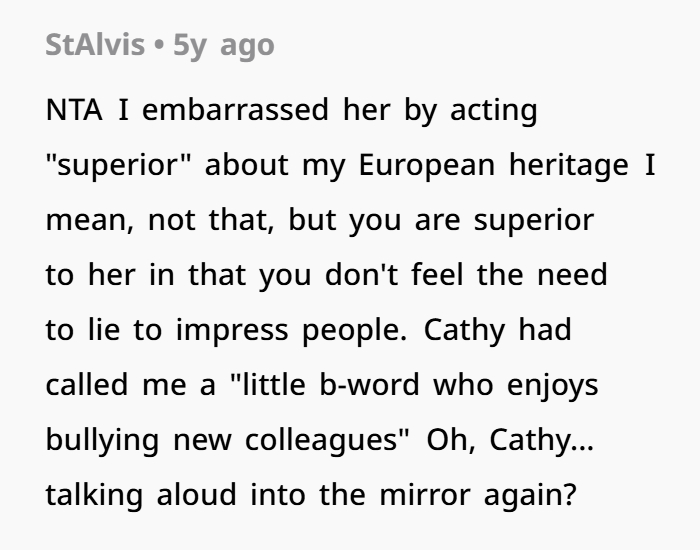
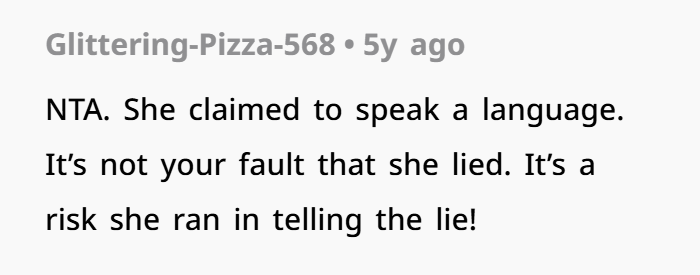
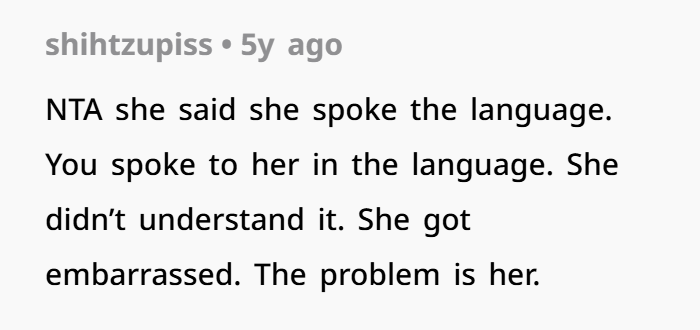
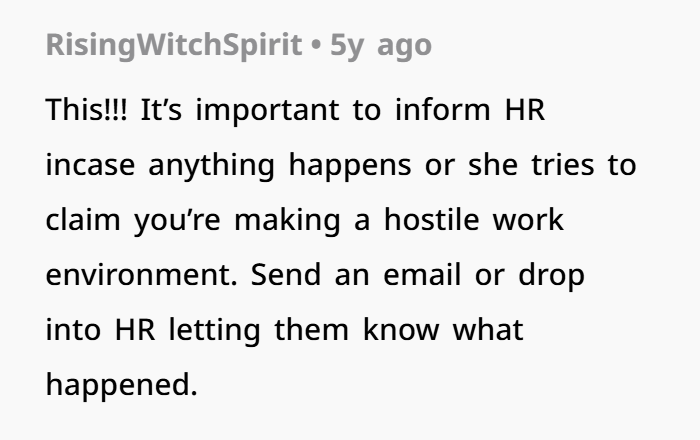
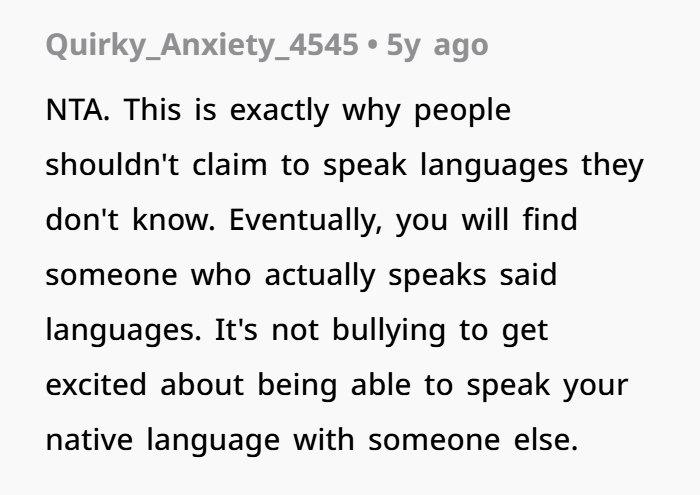
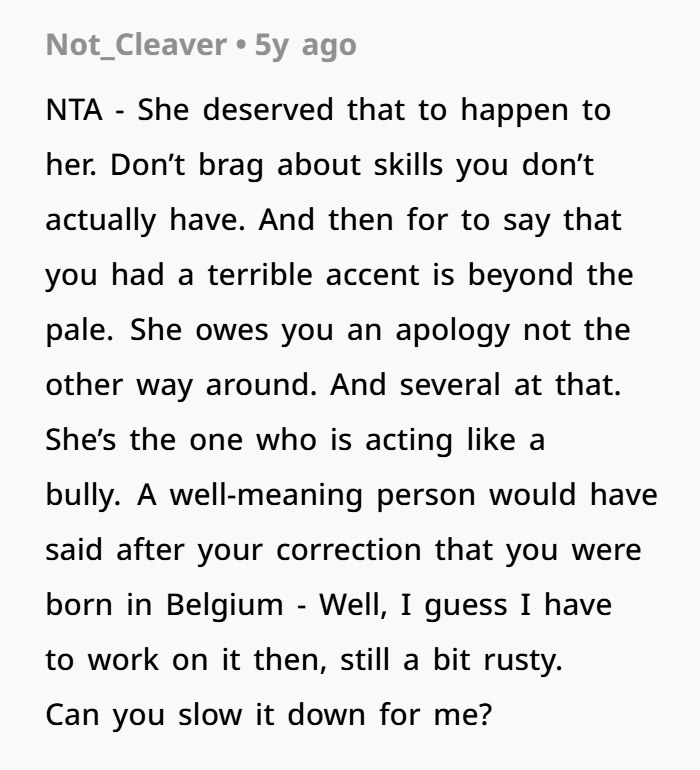
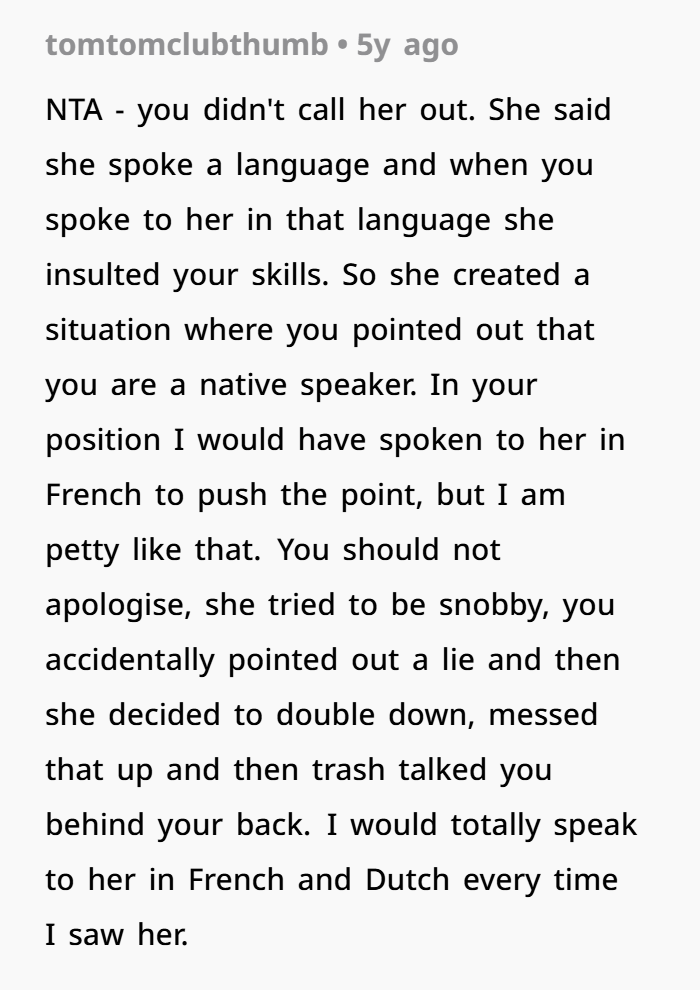

If I were in your shoes:
- Wait a bit for emotions to cool.
- Approach Cathy privately. Say: “Hey, I realize our chat got tense. I want to clear the air — I didn’t mean to make you feel small or superior. I genuinely love speaking languages and it surprised me. If you’re up for it, I’d like us to move forward professionally.”
- Let her respond. If she wants distance, respect that.
- Monitor how she interacts. If she continues hostility or undermining, then weigh more formal steps.

